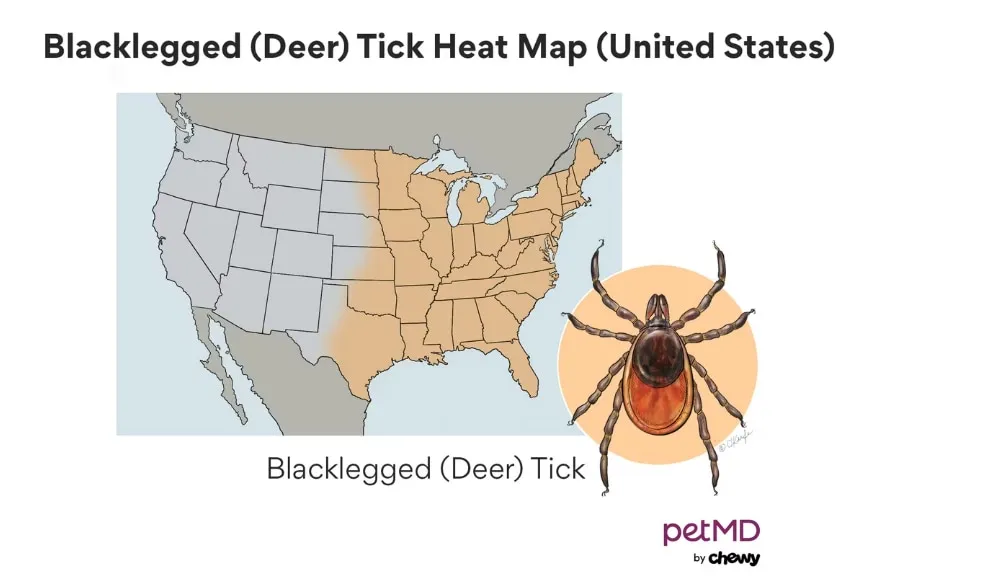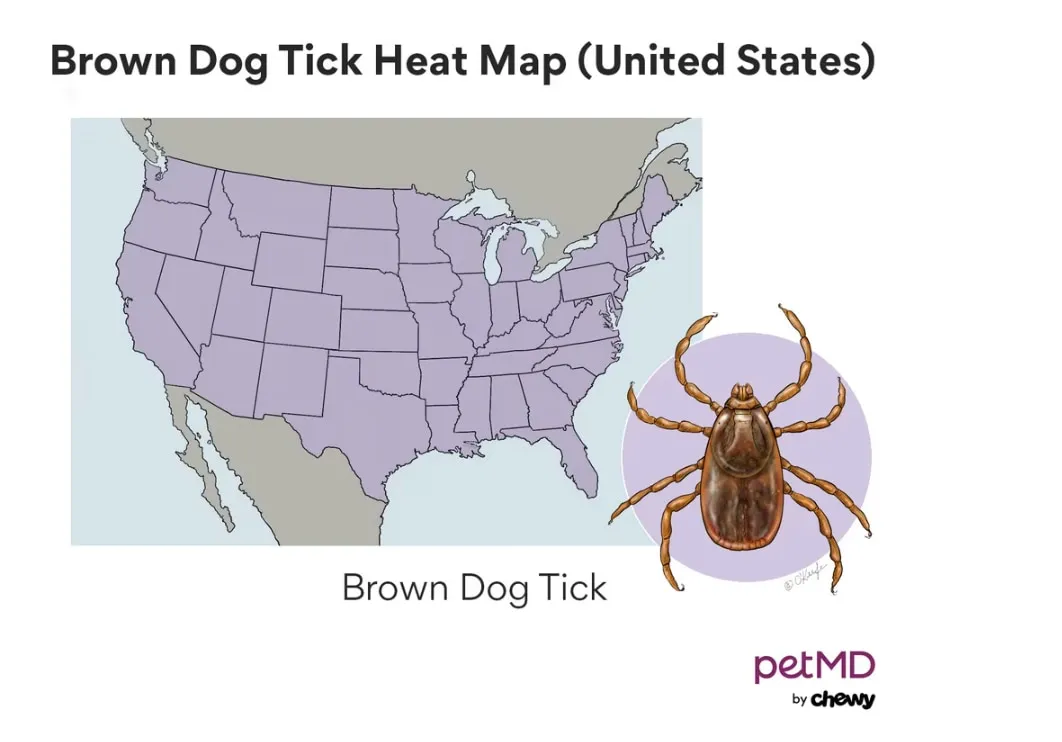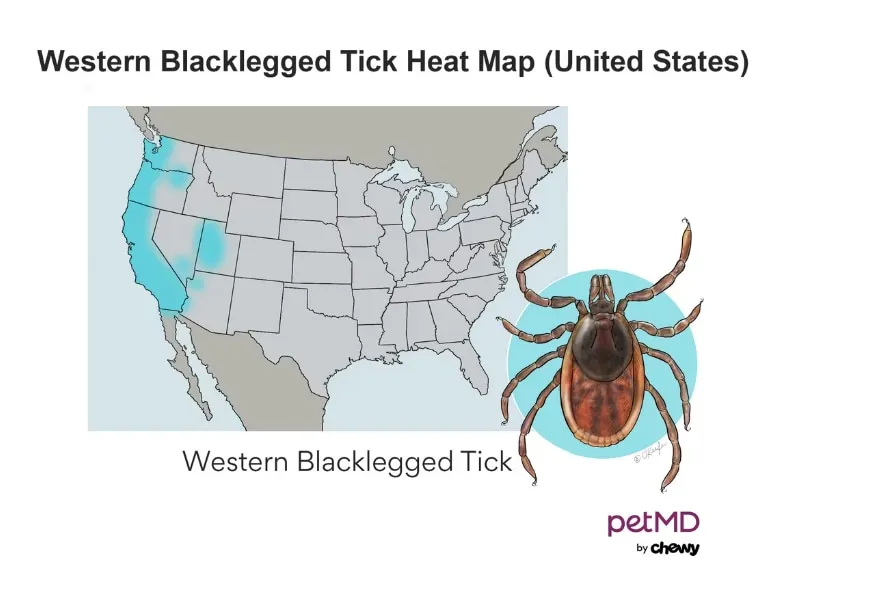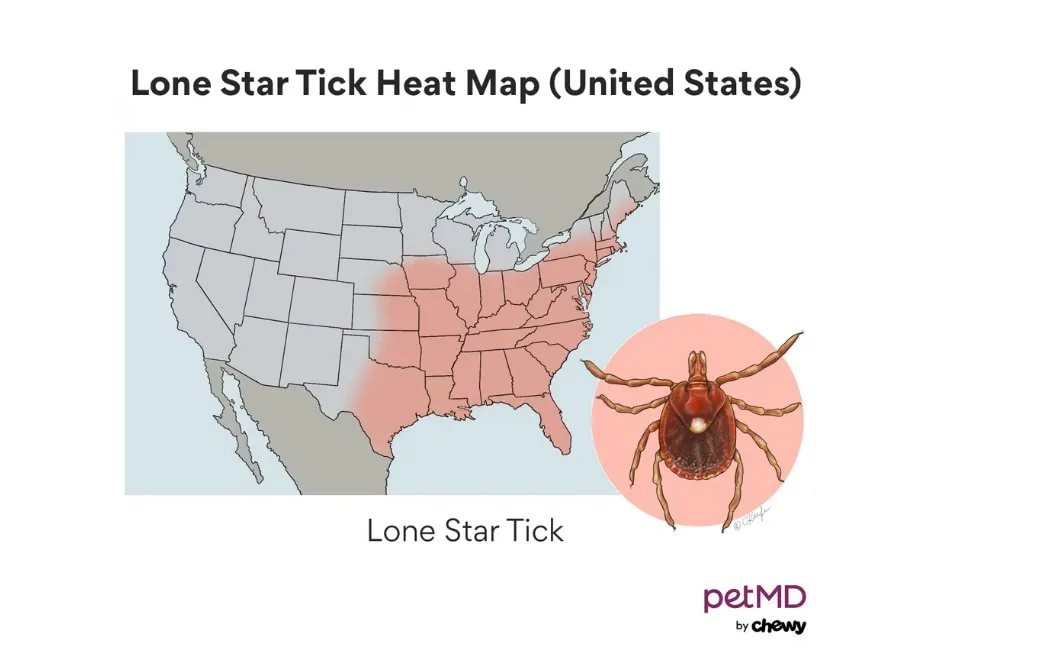Preventative care is the cornerstone of your dog’s long-term health and happiness. A crucial aspect of this care involves protecting them from the triple threat of external parasites like fleas and ticks, and internal parasites such as intestinal worms. Ignoring these common pests can lead to serious health complications for your canine companion, ranging from uncomfortable skin irritations and anemia to life-threatening diseases and nutrient deficiencies. Implementing a consistent and effective flea, tick, and intestinal worm treatment for dogs is not just about comfort; it’s about safeguarding their well-being and, in many cases, protecting your entire household.
This comprehensive guide will delve into why a robust parasite prevention strategy is essential, when to initiate treatment, how to choose the most suitable all-in-one solution, and explore popular product options available today. Our aim at Dog Care Story is to equip you with the knowledge needed to make informed decisions, ensuring your dog lives a healthier, parasite-free life.
Why Comprehensive Parasite Prevention is Crucial for Your Dog
Fleas and ticks are known as ectoparasites, meaning they live on the outside of their host, feeding on blood. Intestinal worms, conversely, are endoparasites, residing within your dog’s digestive system, often silently wreaking havoc. All three pose significant threats that extend far beyond simple annoyance.
The Dangers of Fleas
Fleas are tiny, fast-moving insects that can cause intense itching, leading to skin irritation and infections. Their saliva contains allergens that can trigger Flea Allergy Dermatitis (FAD), a severe allergic reaction resulting in relentless scratching, hair loss, and secondary bacterial infections. In puppies or small dogs, a heavy flea infestation can lead to anemia due due to significant blood loss. Beyond discomfort, fleas can also transmit tapeworms (specifically Dipylidium caninum) if your dog ingests an infected flea while grooming.
The Risks Posed by Ticks
Ticks are arachnids that latch onto your dog’s skin to feed. Their bites can cause localized irritation, infection, abscesses, and in rare cases, tick paralysis. However, the most significant danger from ticks lies in their ability to transmit a wide array of serious diseases. These include Lyme disease, Ehrlichiosis, Anaplasmosis, Rocky Mountain Spotted Fever, and Babesiosis, many of which can lead to chronic health issues, organ damage, and even be fatal if left untreated. Some of these tick-borne illnesses can manifest with subtle symptoms, making early and consistent prevention vital.
Understanding Intestinal Worms: A Silent Threat
Intestinal worms are internal parasites that reside in your dog’s gastrointestinal tract, competing for nutrients and causing damage. They can range from microscopic to several inches long, and some are visible in stool, which might look like worms in dog stool look like rice in the case of tapeworms. The most common types include:
- Roundworms: Common in puppies, often transmitted from mother to offspring. They can cause a pot-bellied appearance, dull coat, vomiting, diarrhea, and poor growth.
- Hookworms: These tiny worms attach to the intestinal lining and feed on blood, leading to anemia, weight loss, and bloody or tarry stools. They can be particularly dangerous for puppies.
- Whipworms: Living in the large intestine, whipworms are harder to detect and can cause chronic diarrhea, weight loss, and dehydration.
- Tapeworms: These flat, segmented worms can be transmitted by ingesting infected fleas or rodents. They often cause mild symptoms but can lead to anal itching, scooting, and visible segments resembling grains of rice around the dog’s anus.
Zoonotic Potential: Protecting Your Family
A critical reason for diligent parasite prevention is the zoonotic risk—the potential for these parasites and the diseases they carry to spread from your dog to humans. Fleas can bite humans, causing itchy welts. Ticks can transmit diseases like Lyme disease to people. Certain intestinal worms, particularly roundworms and hookworms, can pose a health risk to humans, especially children, if their eggs are accidentally ingested from contaminated soil. This highlights the importance of an integrated flea, tick, and intestinal worm treatment for dogs strategy not just for your pet, but for your family’s safety too.
When Your Dog Needs Flea, Tick, and Intestinal Worm Treatment
Parasites are incredibly resilient and can thrive in diverse environments and climates. While some areas experience seasonal peaks, fleas, ticks, and intestinal worms are a year-round threat in many regions. To provide continuous protection against these diseases, it is essential to start parasite prevention early in your dog’s life—typically around 8 weeks of age, depending on the product—and continue it consistently every month or as directed by your veterinarian, throughout their entire life.
Many pet owners mistakenly believe that indoor dogs are safe from parasites. However, fleas can easily hitch a ride indoors on shoes or clothing, and ticks can be brought in by other outdoor-loving pets or even wildlife passing by your yard. Year-round prevention ensures that your dog is always protected, regardless of the season or their exposure level.
Choosing the Right All-in-One Parasite Treatment for Dogs
With a multitude of products available, selecting the ideal flea, tick, and intestinal worm treatment for dogs can feel overwhelming. Many products offer comprehensive, all-in-one protection, often referred to as all in one flea and wormer for dogs, targeting fleas, ticks, and various internal parasites, sometimes even mites and heartworms. The best choice for your dog will depend on several factors, and always requires consultation with your veterinarian.
Key Factors to Discuss with Your Veterinarian
Before committing to any parasite medication, a thorough discussion with your veterinarian is paramount. They can provide tailored advice based on your dog’s specific needs, health status, and local parasite risks. Key points to review include:
- Species-Specific Product: Ensure the product is explicitly formulated for dogs, not cats, as some ingredients (like permethrin) are highly toxic to felines.
- Correct Weight Range: Administering too little can be ineffective, while too much can be dangerous.
- Comprehensive Parasite Coverage: Confirm it protects against all relevant parasites in your area, including fleas, ticks, heartworms, and the specific intestinal worms your dog is at risk for.
- Administration Guidelines: Understand if it should be given with food, how often, and how long it takes to become effective.
- Safety Concerns & Adverse Reactions: Discuss any potential side effects or allergic reactions and what steps to take if they occur.
Application Methods: Oral vs. Topical Treatments
Parasite preventatives primarily come in two forms:
- Oral Treatments: These are chewable tablets that your dog ingests, often flavored to be palatable. Flea medicine in pill form for dogs can be highly effective as they work systemically throughout the dog’s body.
- Pros: Easy to administer (often like a treat), not affected by bathing or swimming, no residue on the fur.
- Cons: Requires your dog to eat the tablet, potential for vomiting before absorption, may cause digestive upset in sensitive dogs.
- Topical Treatments: These are liquid solutions applied directly to your dog’s skin, typically between the shoulder blades or down the back.
- Pros: Good for picky eaters or dogs with sensitive stomachs, no ingestion required.
- Cons: Can leave a greasy residue, requires careful handling to prevent contact with children or other pets before drying, efficacy can be reduced by frequent bathing or swimming.
Geographic Considerations & Exposure Risk
The prevalence of specific fleas, ticks, and internal parasites varies significantly by geographic location. The Companion Animal Parasite Council (CAPC) provides valuable maps and resources to identify the common parasites in your region. Understanding these local risks helps your veterinarian recommend a product that offers targeted protection. Additionally, consider your dog’s access to the outdoors. Dogs frequenting dog parks, hiking trails, wooded areas, or even just a backyard with heavy brush are at a higher risk of exposure. Tick distribution map for specific tick species in the Northeastern US
Tick distribution map for specific tick species in the Northeastern US Tick distribution map for specific tick species in the Southeastern US
Tick distribution map for specific tick species in the Southeastern US Tick distribution map for specific tick species in the Midwestern US
Tick distribution map for specific tick species in the Midwestern US Tick distribution map for specific tick species in the Western US
Tick distribution map for specific tick species in the Western US
Breed-Specific Sensitivities (MDR-1 Gene)
Certain dog breeds, such as Collies, Australian Shepherds, and Shetland Sheepdogs, may carry a gene mutation called MDR-1. This mutation affects how their body processes certain medications, potentially leading to adverse reactions. While many modern parasite preventatives are tested and deemed safe for dogs with the MDR-1 mutation, it’s always wise to discuss this with your vet, especially if your dog is one of the affected breeds. Genetic testing for the MDR-1 gene is available.
Lifestyle and Activity Levels
A dog’s lifestyle also plays a role. Working, herding, or hunting dogs that spend extensive time outdoors in fields or forests face higher exposure risks than a sedentary indoor dog. However, as noted earlier, even strictly indoor dogs require prevention. Consider your dog’s typical routine and environmental exposure when discussing prevention options with your vet.
Age and Life Stage (Puppies, Seniors)
The age and weight of your dog are critical factors. Most parasite preventatives have minimum age and weight requirements, typically starting at 8 weeks of age and a specific minimum weight. For very young puppies or very small breeds, your veterinarian will recommend products specifically formulated for their delicate systems. Similarly, senior dogs or those with compromised health may require special consideration.
Existing Medical Conditions
It is vital to inform your veterinarian about any existing medical conditions your dog may have. For instance, some classes of preventatives, like isoxazolines, should be used with extreme caution in dogs with a history of seizures or neurological disorders, as they may lower the seizure threshold in susceptible individuals. Discussing any previous allergic reactions to medications, underlying illnesses, or if your dog is pregnant, nursing, or used for breeding, is essential for ensuring the chosen treatment is safe and effective.
Over-the-Counter vs. Prescription Flea, Tick, and Worm Medications
The market offers both over-the-counter (OTC) and prescription options for parasite control. Understanding the differences is important.
Over-the-Counter Flea and Tick Products
Over the counter flea meds for dogs do not require a veterinary prescription and are widely available at pet stores and online. While convenient, their effectiveness and safety can vary. If you opt for an OTC product, it is absolutely critical to consult your veterinarian first to confirm it is a safe and appropriate choice for your specific dog, and that it effectively covers the parasite risks in your area.
Prescription Flea, Tick, and Worm Products
Prescription medications typically require a veterinary consultation and are often considered more potent and comprehensive. Veterinarians generally recommend prescription products because they undergo rigorous testing for efficacy and safety, and they frequently offer broader spectrum protection, covering more types of parasites including heartworms and a wider range of intestinal worms. While they may cost slightly more, the peace of mind and superior protection they offer often outweigh the price difference.
Popular All-in-One Flea, Tick, and Intestinal Worm Treatment Options
Many modern parasite control products offer comprehensive protection against multiple types of parasites, often combining flea, tick, heartworm, and intestinal worm prevention in a single easy-to-administer dose. Here are some widely recognized options, but remember to always consult your vet for the best choice for your dog:
Advantage
- Advantage II: A topical monthly solution primarily for flea control, killing all life stages of fleas and chewing lice. It does not provide tick or intestinal worm prevention.
- Advantage Multi: This topical monthly product offers broader protection, treating fleas, sarcoptic mange, and various intestinal parasites (hookworms, roundworms, whipworms), and preventing heartworm disease. It is fast-acting against fleas but does not offer tick prevention. This is an excellent option for flea worm and mite treatment for dogs if ticks are not a major local concern.
Bravecto
Bravecto is available as a chewable tablet or topical solution, providing protection against fleas and ticks for up to 12 weeks. It also has proven efficacy against demodectic, sarcoptic mange, and ear mites. As an isoxazoline drug, it should be used with caution in dogs with a history of seizures or neurological disorders. Bravecto offers robust external parasite control but typically does not include intestinal wormers directly, though it can be combined with other products for comprehensive coverage.
Comfortis
Comfortis is a monthly chewable tablet that specifically targets fleas, killing them quickly. It is an effective flea control option but does not provide protection against ticks or intestinal worms. It’s suitable for dogs and puppies 14 weeks or older, weighing over 5 pounds.
Credelio
Credelio is a monthly chewable tablet from the isoxazoline class, effective against fleas and ticks, beginning to kill fleas within four hours. It is suitable for dogs and puppies over 8 weeks and weighing more than 4.4 pounds. Similar to other isoxazolines, caution is advised for dogs with a history of seizures.
Credelio Quattro
This is a powerful, monthly chewable tablet offering broad-spectrum parasite protection. Credelio Quattro includes lotilaner for fleas and ticks, moxidectin for heartworms, hookworms, and roundworms, praziquantel for tapeworms, and pyrantel for hookworms and roundworms. It’s one of the most comprehensive all in one flea and wormer for dogs treatments, available for dogs and puppies 8 weeks and older weighing at least 3.3 pounds.
Frontline
- Frontline Gold: A monthly topical product that kills fleas, ticks, and chewing lice within hours.
- Frontline Plus: Similar to Gold, it’s a monthly topical that kills fleas, ticks, and chewing lice, but may take slightly longer to act.
- Frontline Shield: A monthly topical that kills fleas, ticks, chewing lice, and stable flies, while also repelling mosquitoes and ticks. Caution: Highly toxic to cats.
K9 Advantix II
K9 Advantix II is a monthly topical solution that repels and kills fleas, ticks, mosquitoes, and chewing lice, and also repels biting flies. It’s fast-acting, initiating parasite kill within hours. Caution: This product is highly toxic to cats and should be used with extreme care in multi-pet households.
Nexgard
Nexgard is a monthly chewable tablet, an isoxazoline drug, effective against fleas and a variety of ticks (deer, American dog, brown, Lone Star). It also has extra-label efficacy against sarcoptic and demodectic mange. It starts killing fleas within four hours. Use with caution in dogs with seizure history.
Onguard Plus
Onguard Plus is a monthly topical product that kills all fleas, ticks, sarcoptic mange, and chewing lice. It’s suitable for dogs and puppies over 8 weeks and weighing more than 5 pounds.
Seresto
Seresto is a unique collar that provides long-lasting protection (up to eight months) against fleas and ticks. It works by releasing active ingredients (imidacloprid and flumethrin) into your dog’s skin and coat. Efficacy may decrease with frequent bathing or swimming. It’s suitable for dogs and puppies over 7 weeks of age.
Simparica Trio
Simparica Trio is a powerful monthly chewable tablet designed for broad-spectrum protection. It contains sarolaner (an isoxazoline) for fleas and ticks, moxidectin for heartworms and certain intestinal worms (roundworms, hookworms), and pyrantel (also for hookworms and roundworms). It’s also used extra-label for demodectic mange, sarcoptic mange, and ear mites, making it an excellent all-in-one flea worm and mite treatment for dogs. Like other isoxazolines, use with caution in dogs with seizure history.
Trifexis
Trifexis is a monthly chewable tablet offering comprehensive internal and external parasite control. It contains spinosad for fleas and milbemycin oxime for hookworms, roundworms, and whipworms, while also preventing heartworm disease. It is fast-acting against fleas but does not provide tick protection.
Vectra 3D
Vectra 3D is a monthly topical solution that repels and kills a wide range of parasites: fleas, ticks, mosquitoes, chewing lice, sand flies, biting flies, and some mites. It’s fast-acting, showing efficacy within hours. Caution: This product is highly toxic to cats and should be used with extreme care in multi-pet households.
What to Do If Your Dog Already Has Worms or Parasites
If you suspect your dog already has fleas, ticks, or intestinal worms, immediate action is necessary.
- Fleas and Ticks: If you find live fleas or ticks on your dog, consult your veterinarian right away. They can recommend safe and effective products for immediate treatment, in addition to establishing a long-term prevention plan. For ticks, use tweezers or a specialized tick removal tool to carefully extract the entire tick.
- Intestinal Worms: Symptoms like unexplained weight loss, dull coat, diarrhea, vomiting, or visible worms in stool (which might look like worms in dog stool look like rice) warrant an immediate vet visit. Your vet will perform a fecal exam to identify the specific type of worm and prescribe the appropriate deworming medication. Never attempt to self-diagnose or treat intestinal worms, as different worms require different medications.
Conclusion
Protecting your dog from fleas, ticks, and intestinal worms is a continuous and vital responsibility for every pet parent. These tiny pests pose significant health risks, from irritating skin conditions and anemia to the transmission of serious diseases, some of which can even affect humans. By understanding the threats, knowing when to initiate prevention, and carefully selecting a comprehensive flea, tick, and intestinal worm treatment for dogs, you can ensure your beloved companion remains healthy and vibrant.
Always prioritize consultation with your veterinarian, who can provide personalized recommendations based on your dog’s age, weight, lifestyle, health status, and local parasite prevalence. Choosing an all in one flea and wormer for dogs is often the most convenient and effective way to achieve broad-spectrum protection. Consistent, year-round prevention is the key to a parasite-free life for your dog and a healthier home for your family.
For more expert advice on canine health and care, explore other articles on Dog Care Story!
References
- American Veterinary Medical Association (AVMA)
- Companion Animal Parasite Council (CAPC)
- World Health Organization (WHO) Guidelines for Zoonotic Diseases
- Veterinary Partner (a VIN company) educational resources
